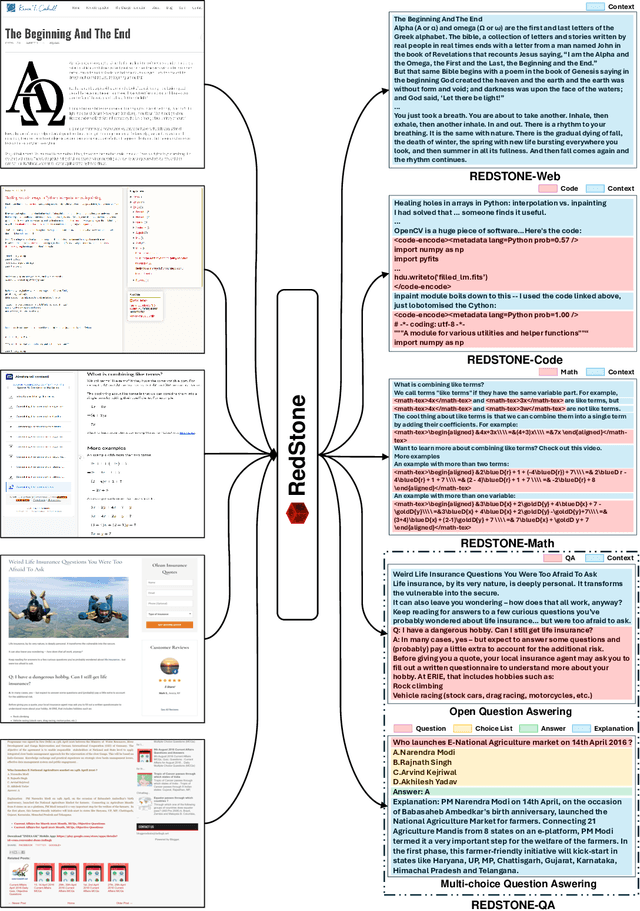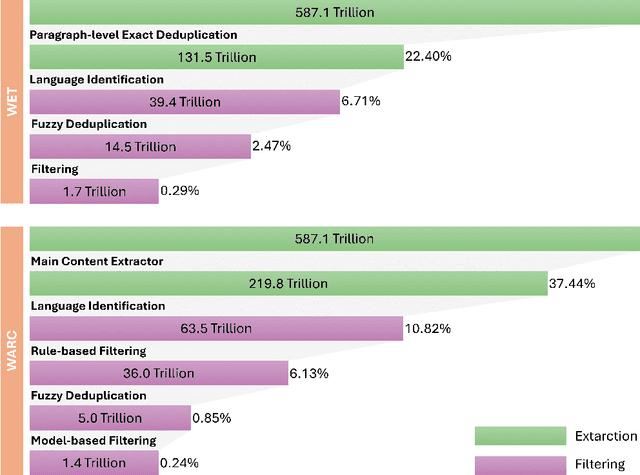Qinzheng Sun
MMLU-CF: A Contamination-free Multi-task Language Understanding Benchmark
Dec 19, 2024Abstract:Multiple-choice question (MCQ) datasets like Massive Multitask Language Understanding (MMLU) are widely used to evaluate the commonsense, understanding, and problem-solving abilities of large language models (LLMs). However, the open-source nature of these benchmarks and the broad sources of training data for LLMs have inevitably led to benchmark contamination, resulting in unreliable evaluation results. To alleviate this issue, we propose a contamination-free and more challenging MCQ benchmark called MMLU-CF. This benchmark reassesses LLMs' understanding of world knowledge by averting both unintentional and malicious data leakage. To avoid unintentional data leakage, we source data from a broader domain and design three decontamination rules. To prevent malicious data leakage, we divide the benchmark into validation and test sets with similar difficulty and subject distributions. The test set remains closed-source to ensure reliable results, while the validation set is publicly available to promote transparency and facilitate independent verification. Our evaluation of mainstream LLMs reveals that the powerful GPT-4o achieves merely a 5-shot score of 73.4% and a 0-shot score of 71.9% on the test set, which indicates the effectiveness of our approach in creating a more rigorous and contamination-free evaluation standard. The GitHub repository is available at https://github.com/microsoft/MMLU-CF and the dataset refers to https://huggingface.co/datasets/microsoft/MMLU-CF.
RedStone: Curating General, Code, Math, and QA Data for Large Language Models
Dec 04, 2024



Abstract:Pre-training Large Language Models (LLMs) on high-quality, meticulously curated datasets is widely recognized as critical for enhancing their performance and generalization capabilities. This study explores the untapped potential of Common Crawl as a comprehensive and flexible resource for pre-training LLMs, addressing both general-purpose language understanding and specialized domain knowledge. We introduce RedStone, an innovative and scalable pipeline engineered to extract and process data from Common Crawl, facilitating the creation of extensive and varied pre-training datasets. Unlike traditional datasets, which often require expensive curation and domain-specific expertise, RedStone leverages the breadth of Common Crawl to deliver datasets tailored to a wide array of domains. In this work, we exemplify its capability by constructing pre-training datasets across multiple fields, including general language understanding, code, mathematics, and question-answering tasks. The flexibility of RedStone allows for easy adaptation to other specialized domains, significantly lowering the barrier to creating valuable domain-specific datasets. Our findings demonstrate that Common Crawl, when harnessed through effective pipelines like RedStone, can serve as a rich, renewable source of pre-training data, unlocking new avenues for domain adaptation and knowledge discovery in LLMs. This work also underscores the importance of innovative data acquisition strategies and highlights the role of web-scale data as a powerful resource in the continued evolution of LLMs. RedStone code and data samples will be publicly available at \url{https://aka.ms/redstone}.
 Add to Chrome
Add to Chrome Add to Firefox
Add to Firefox Add to Edge
Add to Edge